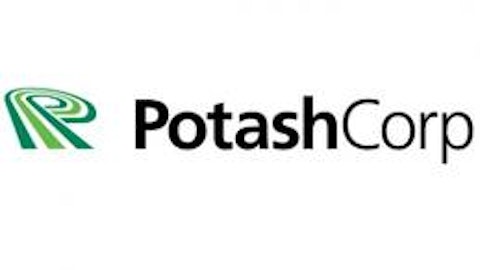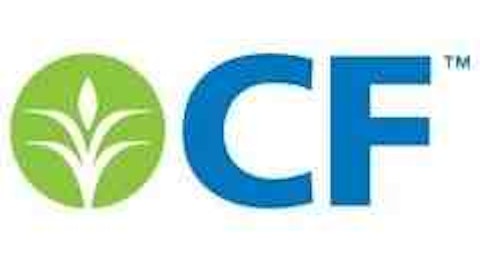The growing world population and the increasing need for food supply is expected to benefit strongly industries related to agriculture. One particular group of companies that is expected to grow in the medium- and long-term are producers of fertilizers. Driven by such optimistic prospects, the stocks of fertilizer producers have performed strongly in the past year, the whole industry returning around 13% over the last 52 weeks. With this in mind, investors have been bullish on fertilizer stocks and one of the players from the industry is Kohn Industries, which in its latest 13F filing disclosed three large equity stakes in Mosaic Co (NYSE:MOS), Intrepid Potash, Inc. (NYSE:IPI), and Potash Corp./Saskatchewan (USA) (NYSE:POT).

In its latest 13F filing, Koch Industries disclosed ownership of 3.17 million shares of Mosaic Co (NYSE:MOS). The stake valued at $144.62 million at the end of December has been raised by 111% during the last three months of 2014. The holding, which represented 72% of Koch Industries’ $201 million 13F equity portfolio at the end of last year, was initiated over a year ago and has been raised from 1.05 million shares of Mosaic that Koch held initially. In Intrepid Potash, Inc. (NYSE:IPI), Koch’s stake contains 2.0 million shares, valued at $27.76 million, unchanged over the quarter. On the other hand, in Potash Corp./Saskatchewan (USA) (NYSE:POT), the multinational company cut its position by 65% over the quarter to around 735,000 shares, with an aggregate value of $25.96 million. Overall, the company holds around 98.7% of its 13F portfolio invested in these three fertilizer stocks. It also disclosed less significant positions in Cascade Microtech, Inc. (NASDAQ:CSCD) and Metlife Inc (NYSE:MET).
There are several reasons why we should look into Koch Industries’ interest in other companies engaged in the production of fertilizers. First of all, Koch is not new to the fertilizer business, since it owns its own subsidiary, Koch Fertilizers, LLC., which is engaged in the production of a large array of products based on ammonia, urea, UAN, phosphate, potash, and sulfur. Therefore, its interest in other companies, might be driven by the intention to profit from the opportunities in the fertilizer segment, above its own production possibilities.
So far, analysts and investors have not been very thrilled about fertilizer stocks and especially the producers of potash-based fertilizers. And they had their reasons. Crop prices have been lagging, which is expected to reduce the income of farmers. Even though, farmers know that the decline in crop prices are not going to last, they will still be looking for ways to reduce the costs of production, which might also affect the producers of fertilizers through a reduction in demand. Moreover, in the case of potash-based fertilizer companies, they have been affected by a turbulence in 2013, when one of the largest cartels of the potash sector was broken up by the withdrawal of Russian producer Uralkali (the other company forming the cartel was Belaruskali).





